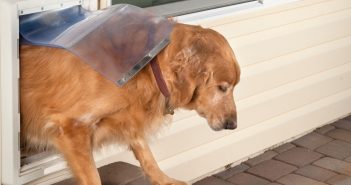Canine Hip Dysphasia (CHD) can effect dogs of any size, breed or age. Commonly a contributing factor to canine osteoarthritis and other conditions, it?s important that all dog owners familarize themselves with CHD and its symptoms. So what is Canine Hip Dysplasia? Read on, to learn more about this condition and how it is diagnosed.
Quite often, research for CHD seems contradictory and confusing. Known to be a genetic disease, the trouble lies in that the condition is polygenetic, meaning that it is caused by many genes, rather than a single one. Because of this, it is very difficult to pinpoint the gene that is responsible for causing Canine Hip Dysplasia. Complicating things further is the fact that dogs who are affected by CHD often have a wide variety of symptoms, ranging from those which are virtually indetectable to a complete crippling of the hindquarters. Additionally, diet and weight can also play a part in whether or not your canine companion shows signs of this disease.
There is only one way to be sure whether or not your dog has CHD and that is to have them taken in for a radiographic (X-ray) evaluation. Even then, while many veterinarians will make a diagnosis, based on the results of the x-ray, it is best to send the paperwork out to an organization designed to evaluate, certifiy and register your dog, based on their findings. Potential breeding stock should always be tested for CHD and, should it be discovered that one of them carries it, they should be sterilized, so they cannot pass it on to their offspring.
Registries are now available, to help promote good breeding practices and healthier dogs. The Orthopedic Foundation of Animals (OFA), is one of the best-known registries in the United States and will certify all dogs, above the age of 2 years. Each country has its own registries and the evaluation processes may vary, so it is good practice to check with your local kennel associations and breed registries for the best options available. Registries help breeders make informed choices about their breeding stock and ensures the health and well-being of your family pet.



